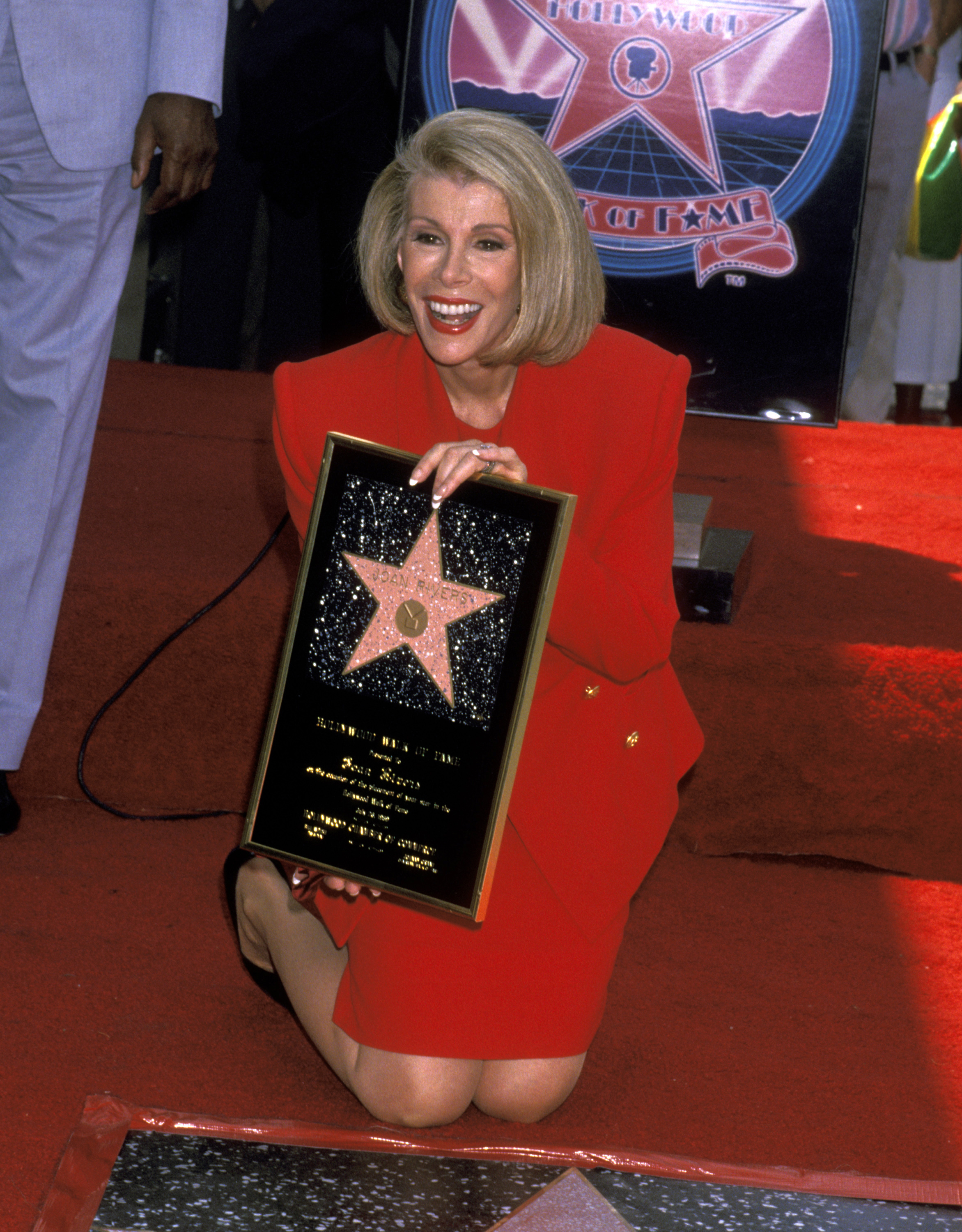
Now that Joan Rivers has passed away, you probably won’t be reading much from all the people who called her a bitch. Of course, nobody wants to speak ill of the dead, and they shouldn’t. But even though CNN called Joan Rivers “mean” in July, today they’re calling her “pioneering.” HollywoodLife called her “cruel” and “hateful” in June, but today she’s “beloved.” Jezebel staffers, who have long railed against Rivers’ “offensive” jokes, are now hailing her as “a comic legend.”
Joan Rivers would call those people “full of s–t.”
It’s not that Joan Rivers wasn’t a pioneering, beloved comic legend — she was. It’s that she didn’t get enough credit for that when she was alive. Instead, there was always someone ready to interpret her comments as personal attacks rather than jokes, which made her beloved and reviled in equal measure. After the father of a deaf boy was offended by a joke she made about Helen Keller, she explained her thinking to an interviewer:
If you laugh at it, you can deal with it, and if you don’t, you can’t deal with it. And don’t start telling me that I shouldn’t be saying it. That’s the way I do it. I would have been laughing at Auschwitz.
She joked that Adele was fat. She joked that Kim Kardashian’s daughter North West was an “ugly” baby who needed to wax. She even joked about her own husband’s suicide. When New York Magazine asked her if there was ever a wrong time to make a joke, she said:
Never. If a joke comes to you, then that’s the time for humor. When my husband committed suicide, there was nothing funny running through my head. But by the next day, I was already starting with close friends to do terrible black humor. Two nights after 9/11, I was doing I-hate-terrorists-because-they’re-so-blank jokes. That’s how I get through life. God has given us this gift of humor. Animals don’t laugh.
In other words, she didn’t have boundaries, but boundaries are exactly what we pay comedians to break. Rivers helped pioneer the kind of nasty humor that spawned a whole generation of comics, from Chris Rock to Sarah Silverman to Ricky Gervais. So why couldn’t we stop telling her to shut up?
Because where male comedians were “funny,” Rivers was “offensive.” She was the Queen of Mean. When she joked that Heidi Klum’s Oscar dress was so stunning that “the last time a German looked this hot was when they were pushing Jews into the ovens,” she was slammed as “vulgar.” A joke about Miley Cyrus’ virginity in her most recent book drew criticism because people thought she was actually accusing her of incest. She was always being asked to apologize for one thing or another, and she almost never did.
Rivers once wrote in the Hollywood Reporter that she felt like people were always looking for evidence that she was a nasty person. “When I say, ‘No, this is wrong,’ people say: ‘See? She is a bitch. She is a c—.’ If I were a man, they’d say: ‘So brilliant. He’s tough, but he’s right.’ Nobody ever says to me, ‘You’re right.’”
But she even had a sense of humor about her own bad rap. After her Comedy Central Roast in 2009, she said, “They called me evil, mean and [a] plastic surgery whore and disgusting. I kept saying to myself, ‘How do they know so much about me?’”
Where most women struggle to be taken more seriously, we needed to take Joan Rivers less seriously. In a comedic career that spanned over 50 years, there was always someone who didn’t get the joke. But she wasn’t a “bitch” — she was a comedian.
More Must-Reads From TIME
- The 100 Most Influential People of 2024
- Coco Gauff Is Playing for Herself Now
- Scenes From Pro-Palestinian Encampments Across U.S. Universities
- 6 Compliments That Land Every Time
- If You're Dating Right Now , You're Brave: Column
- The AI That Could Heal a Divided Internet
- Fallout Is a Brilliant Model for the Future of Video Game Adaptations
- Want Weekly Recs on What to Watch, Read, and More? Sign Up for Worth Your Time
Write to Charlotte Alter at charlotte.alter@time.com